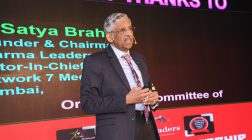Regulatory hurdles for Indian Pharma Companies!

Faced with bans on some of its key drugmakers and intellectual property fights with Big Pharma, India has seen the worst pharma export numbers in a decade and a half.
New government numbers show that drug exports were up just 1.2% to $14.84 billion in the year ending March 31, the Economic Times reports. That is the slowest growth in at least 15 years, it said. Given the regulatory head winds blowing against the industry, a government report says the industry’s sales target of $25 billion for the 2012-2013 year does not look achievable.
In the course of the past year, drug products from two Wockhardt plants were banned by the FDA and at least one other plant was banned by the EU. Wockhardt reported that it would lose $100 million in sales just in the U.S. because of the import alerts. The FDA also banned plants belonging to Ranbaxy Laboratories, India’s largest generics maker, as well as one owned by Sun Pharmaceuticals. Ranbaxy already had two plants banned. The long-running regulatory problems at Ranbaxy finally led Japan’s Daiichi Sankyo, which owns controlling interest, to agree to sell the company to Sun Pharma for $3.2 billion.
The report also anticipates a slowing because of challenges to India’s patent process, which has been highly criticized by Western drugmakers that believe it has deprived them of legitimate sales in the country. The industry has urged the U.S. to impose trade sanctions against India if it doesn’t tighten up its processes. It has been particularly critical of its compulsory license law, which can force branded drugmakers to turn over technology to Indian companies to allow them to make cheaper versions of drugs that the government believes are essential but cost too much.











